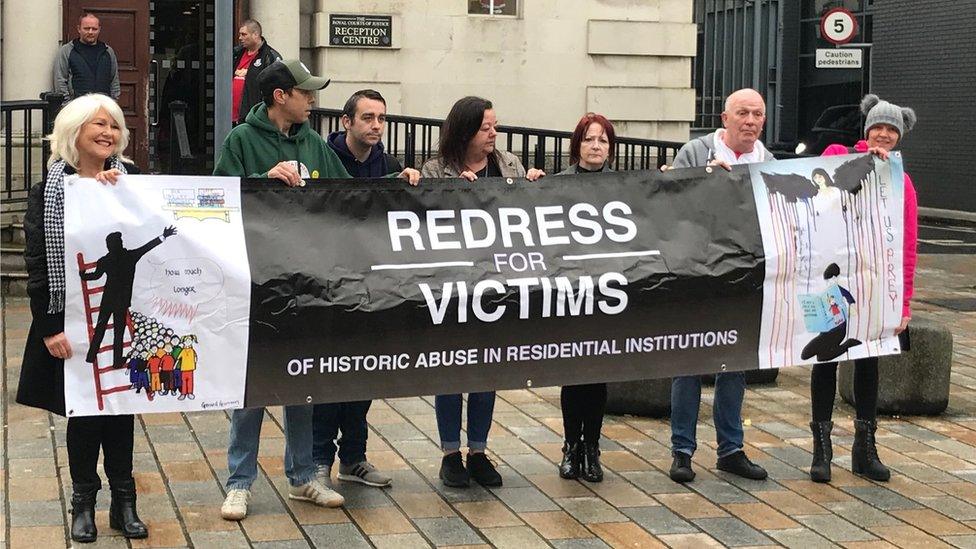Historical institutional abuse: No timeframe for first compensation payments
- Published
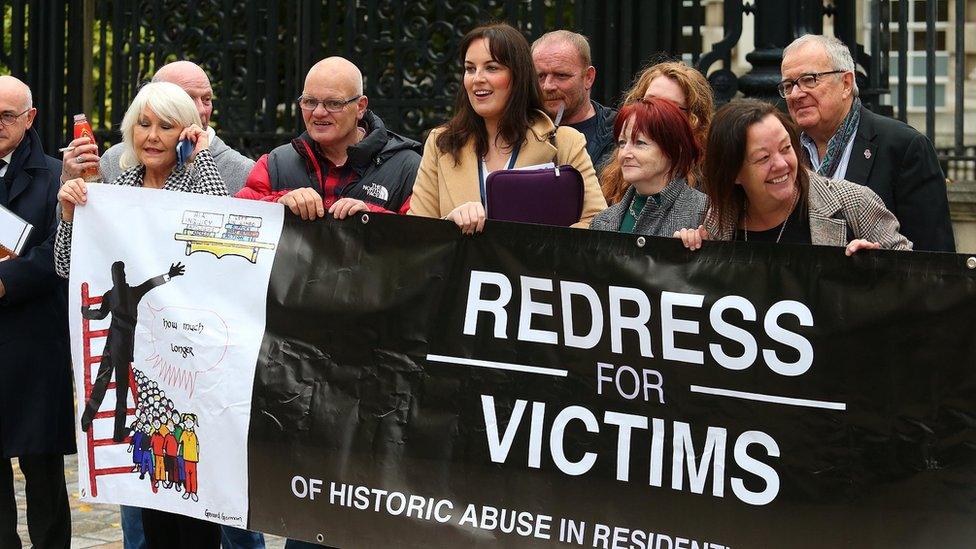
Judges ruled Stormont's Executive Office has the power to compensate institutional abuse victims
A redress board for victims of historical institutional abuse will start to be formed this week, the head of the NI Civil Service has said.
But David Sterling could not give a definitive timeframe for when the first compensation payments will be made.
He met victims and survivors at Stormont on Monday afternoon to discuss the issue.
Last week, MPs passed a bill at Westminster to allow victims to receive redress.
Mr Sterling told BBC News NI that the civil service is "pursuing" state-led institutions and churches in order for them to contribute to the compensation scheme.
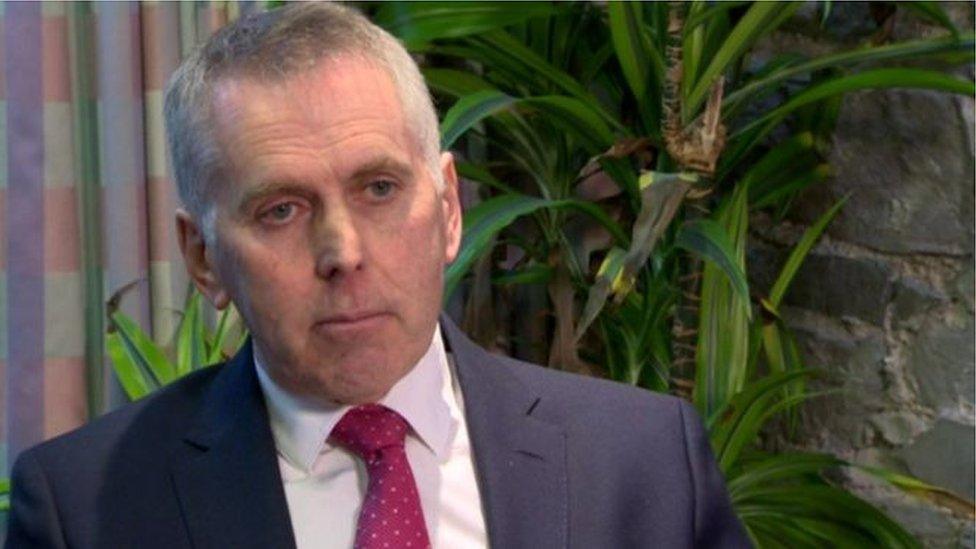
David Sterling met with victims and survivors at Stormont on Monday afternoon
He said that when compensation payments begin to be awarded, he would be "writing to institutions to remind them of their obligations".
Mr Sterling also said asking Westminster to help the civil service fund payments was an option.
However, he said he could not be definitive about a timeframe, despite some victims urging the initial payments be made before Christmas.
"I understand victims have probably waited too long but it would be wrong for me to give a promise I personally can't keep," he said.
"Allow a little bit of time for the redress board and we will then give you an indication of when payments will start."
The board is to be led by a president, who will be a member of the judiciary, and two lay members. The president is likely to be appointed by the end of this week.
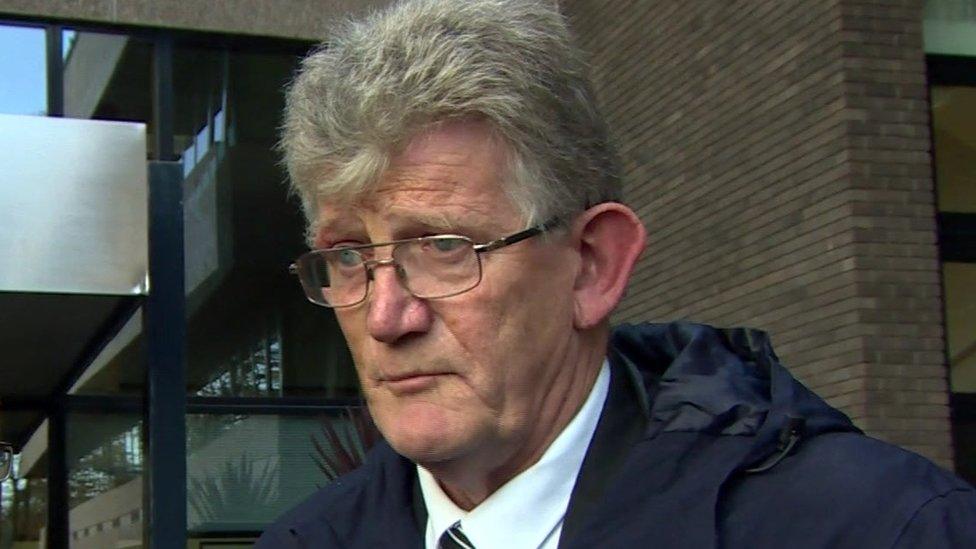
Jon McCourt, from Survivors North West, said the meeting with David Sterling was constructive
Jon McCourt, from campaign group Survivors North West, said the meeting with Mr Sterling was "constructive".
He added that the group had hoped to get a timetable for delivery, but conceded that was "impossible" and said Mr Sterling had "committed that before Christmas he would have the critical path" laid out.
What is the compensation bill?
The compensation scheme was among the recommendations in the final report of the Historical Institutional Abuse (HIA) Inquiry.
It examined allegations of physical, emotional and sexual abuse of children in residential institutions in Northern Ireland between 1922 and 1995.
Last week, long-awaited legislation that will provide compensation for survivors was fast-tracked through Westminster before Parliament was dissolved for the general election.
Northern Ireland Secretary of State Julian Smith described the bill as the first of its kind in the UK, in terms of how abuse survivors should receive recompense.
It is still not known how many people will claim or qualify for compensation under the scheme, according to the interim advocate for victims and survivors of historical institutional abuse, Brendan McAllister.
He said elderly and gravely ill victims will get priority for the compensation payments, with an initial "acknowledgement payment" of £10,000 given to qualifying claimants.
Mr McAllister told the BBC's Good Morning Ulster programme that although about 500 former residents testified to the HIA Inquiry, there could be 10 times as many victims who are eligible to claim.

Brendan McAllister is the interim advocate for victims and survivors of historical institutional abuse
"No-one is actually clear about the ultimate figure," he said.
"The secretary of state last week indicated possibly 5,000, so we do know it will be in the thousands."
Mr McAllister said it was anticipated it could take up to five years for the redress board to process all claims and complete its work.
"I'm glad to say there are priorities," he added.
"They will of course identify the elderly and people who are gravely ill as a priority, but the intention is that everybody who applies, who meets the essential criteria for qualification, will receive an acknowledgement of £10,000.
"Thereafter, the redress board will drill down into the detail of each case to consider other amounts which will be part of a deeper, further redress award in the time ahead."
Campaigners have been lobbying for compensation to be implemented since the HIA ended in January 2017.
'They never had their full childhood'
The HIA Inquiry, chaired by the late Sir Anthony Hart, investigated child abuse in residential institutions run by religious, charitable and state organisations.
Sir Anthony recommended in his final report that all victims should receive tax-free, lump sum payments ranging from £7,500 to £100,000 from a government-funded redress scheme.
However, the legislation stalled after the collapse of Stormont.
- Published5 November 2019
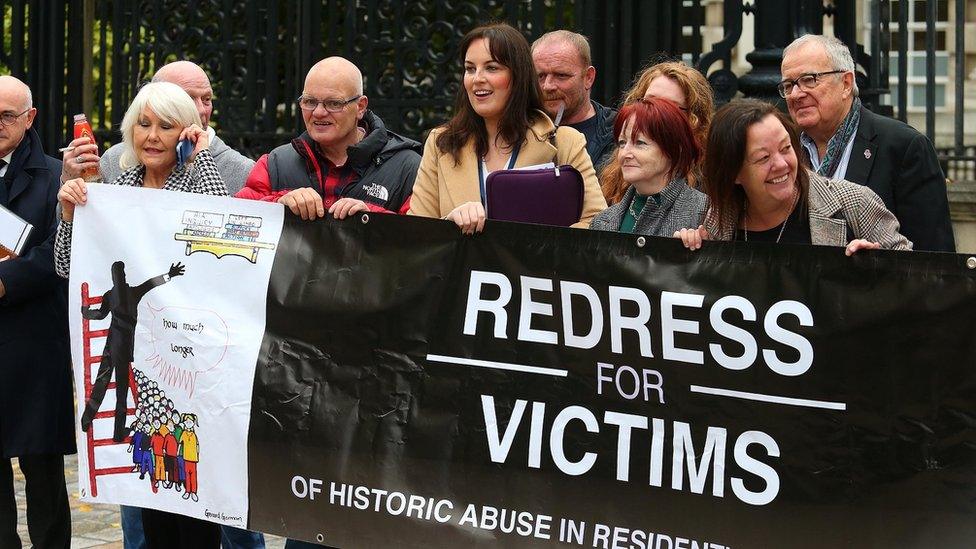
- Published4 November 2019
